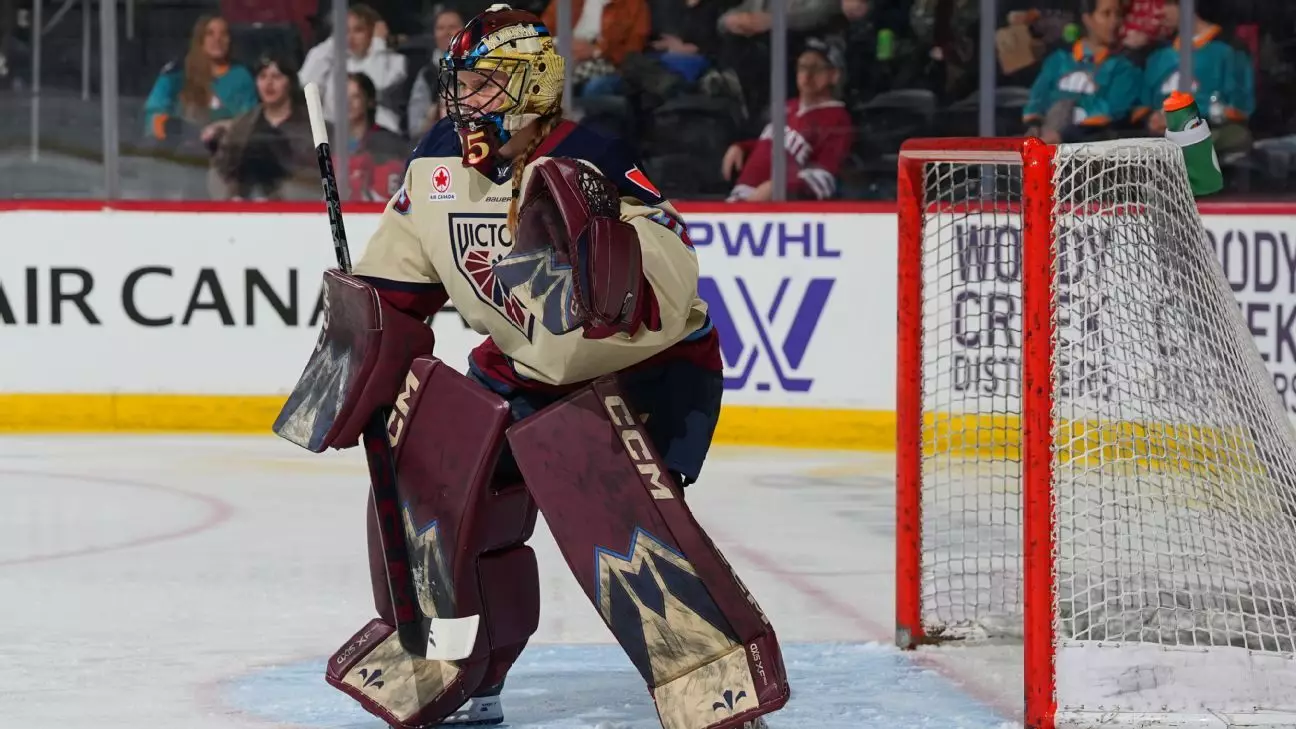The world of women’s hockey is a vibrant tapestry woven from a multitude of individual and collective efforts, but it is also fraught with the unpredictability of injuries. Recently, the Montreal Victoire faced this reality with their star goaltender, Ann-Renee Desbiens, who experienced a significant lower-body injury during a high-stakes match against the Boston Fleet. The injury not only put a damper on her immediate playing prospects but also raised questions about her participation in the upcoming women’s world hockey championships. The surrounding circumstances demand analysis not merely on Desbiens as an individual player, but rather on the profound implications for her team and the sport as a whole.
The Injury and Its Implications
Desbiens, being the cornerstone of the Victoire and known for her remarkable prowess on ice, finding herself on the long-term injured reserve was a setback that resonated beyond mere statistics. General manager Daniele Sauvageau offered a glimpse into the monitoring and rehabilitation process, highlighting the day-to-day evaluations necessary to gauge Desbiens’ recovery. The fact that Desbiens sustained the injury so close to the championship raises a critical concern: How does a team adapt when one of its most pivotal players faces an uncertain timeline for recovery?
As observed during her recent practice sessions, Desbiens showcased her determination by skating in full gear, signifying not just physical resilience but also psychological fortitude. The unwavering support from teammates such as captain Marie-Philip Poulin underscores a vital aspect of sports—mental and emotional support that transcends the ice. The inherent camaraderie among team members is an indispensable thread that binds them thrillingly close, especially during periods of adversity.
Team Strategy in the Face of Adversity
With Desbiens’ availability for the world championship still uncertain, the Victoire have had to recalibrate their strategy, both on and off the ice. The signing of goaltender Tricia Deguire as a temporary guardian for the net is a testament to strategic foresight. This acquisition showcases the team’s adaptability and management’s proactive measures to ensure competitive integrity while waiting for Desbiens’ potential return.
Sauvageau’s statements about the collaboration between various medical teams—including those from Hockey Canada—emphasize a forward-thinking approach that prioritizes player health over immediate gains. This perspective is refreshing in a highly competitive environment where the pursuit of victory often overshadows the well-being of athletes. It not only restores faith in the system but also signifies a shift toward a culture that recognizes the importance of a player’s long-term health and career trajectory.
Looking Ahead: The Championship and Team Spirit
As Canada gears up to defend its world title beginning April 10 against Finland, the anticipation surrounding Desbiens is palpable. Her phenomenal track record of leading Canada to gold at both the Olympics and subsequent championships has solidified her status as one of the finest goaltenders in women’s hockey. However, the question remains: will she be fit to compete? The ongoing dialogue surrounding her condition paints a hopeful picture, yet underscores the importance of readiness over haste.
The spirit of anticipation within the Victoire is evident as they prepare for their journey to Czechia for the pre-camp. It’s more than just strategy and statistics; it’s about unity and the collective belief in the strength of the squad. The resilience demonstrated by Desbiens, combined with her teammates’ unwavering support, creates an uplifting narrative that resonates well beyond a mere game.
A Reflection on the Broader Implications for Women’s Sports
Desbiens’ situation acts as a microcosm for the larger landscape of women’s sports, where talent and resilience are often shadowed by injuries and recovery challenges. Yet, it is also a testament to how far women’s hockey has come—an area once overlooked is now in the spotlight, reflecting strength, unity, and progress. The dedication, not only from athletes but also from management and medical teams, conveys a sentiment that they not only play for victory but also for the promise of a richer and more sustained future in women’s hockey.
As anticipation builds for the upcoming championship, the narratives forged in these challenging times enrich the sport itself, proving that even amidst uncertainties, the heart of a team can rise as one, resilient and hopeful.


Leave a Reply